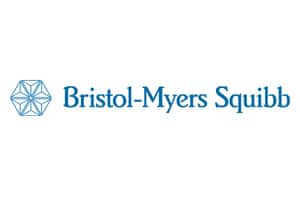
The FDA will review Bristol-Myers Squibb and Acceleron Pharma’s rare blood disease treatment Reblozyl for myelodysplastic syndromes (MDS), setting it up for potential blockbuster status.
The announcement closely follows news that the FDA approved Reblozyl (luspatercept) for the treatment of anaemia caused by the rare blood disorder beta thalassaemia, who regularly require red blood cell transfusions.
Now, an FDA expert panel will review Reblozyl for the treatment of patients with MDS – this includes a number of rare blood cancers in which the bone marrow doesn’t make enough healthy blood cells.
It also causes the production of immature abnormal cells, and can develop into acute myeloid leukaemia (AML)in some patients.
The drug was originally developed by Celgene, which was finally acquired by BMS last month after the merger was initially announced in January.
The FDA review will take place on 18 December, with a target completion date set for 4 April 2020.
“Anaemia associated with MDS remains a significant area of unmet need for these patients, as current treatment options are limited, consisting primarily of medicines that stimulate the production of erythropoietin, and regular RBC transfusions,” said BMS in a statement issued yesterday.
Reblozyl is one of five late-stage pipeline drugs from Celgene tipped for blockbuster status, with analysts predicting the drug could hit peak sales of about $2bn – MDS would account for around two-thirds or more of these revenues.
The filing for MDS is based on the phase 3 MEDALIST trial in adults with ring sideroblast (RS+) MDS-associated anaemia with low- or intermediate-risk of the condition developing into AML.
The drug met the primary endpoint of patients achieving at least eight weeks without the need for a transfusion. Around a third of previously transfusion dependent patients were transfusion independent (TI) over weeks 1-48 of the trial, opposed to 11% in the placebo arm.
The approval of Reblozyl in beta thalassaemia and the potential approval in MDS will buoy the newly merged BMS-Celgene.
It also comes on the heels of another significant approval of Celgene’s JAK inhibitor Inrebic (fedratinib), which scored an FDA nod in August. It was cleared for use in myelofibrosis – a rare bone marrow disorder.
Some analysts have predicted that Inrebic could also become a $1bn product in myelofibrosis, despite a black-box warning on its label for a serious and life-threatening brain reaction called Wernicke’s encephalopathy that was seen in a little over 1% of patient treated with the drug in trials.




